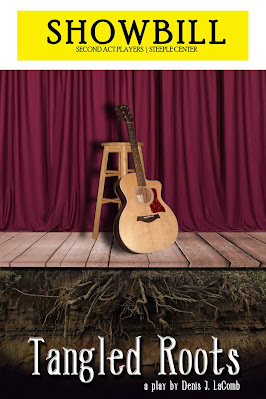A
while back, I wrote a blog entitled: ‘The Boy She Left Behind.’ I explained how
that phrase popped into my consciousness one day out of the blue. Its origin is
less important than the mental picture it painted inside my head. The words and
the images that it conjured up emitted a confusing cauldron of feelings and
emotions. Words and phrases can do that sometimes especially to a writer who is
always on the hunt for impactful vernacular tools to add to his arsenal.
Well, lightning struck a second time with another phrase I came across in a book about folk singers and folk songs. I realized I’ve had several blogs that have talked about the power behind words and phrases and how a writer can find meaning and imagery there. It’s like discovering new paint materials with which to create new works of art.
Two
other blogs, ‘Vernacular warfare’ and ‘Phrases and stages’ covered the same
topic. Words and phrases can cover a plethora of images. Sexual references like
‘wet’ and ‘hard’ paint a certain kind of picture. ‘Soft’ and ‘comforting’ paint
another one entirely. The examples here can go on forever. They’re all part of
the creative arsenal a writer uses to paint his story pictures in the minds of
his readers.
But
for me, it is the more iconic and historical phrases that I find the most
fascinating. Folk music is the perfect conduit for painting these mental
pictures. Down through the ages, based on some semblance of reality, words and
phrases from folk songs have given us ‘Old Hannah,’ the Southern convicts name
for the punishing sun. ‘Delia,’ the name given to a bad woman, a ‘rounder’ or a
‘gambler.’ Like ‘John Hardy’ she was based on real life characters who gained
immortality through song. Old railroad songs seem to be some of the most
prolific image-makers.
I
read a book recently that was entitled: ‘Lead Belly, Woody Guthrie, Bob Dylan,
and American Folk Outlaw Performance.’ The phrase I stumbled across that struck
me like a bat against my brain was: “Goin ‘where the Southern cross’ the Dog.”
The
phrase refers to a railroad crossing in the Deep South well known to locals and
outlaws alike. A great description of this phrase comes from Greg Johnson of the
University of Mississippi. This southern state has a rich and fascinating
treasure lore of blues history and background.
Mr.
Johnson explains:
“Many
early blues singers used variations on the phrase “going where the Southern
cross the Dog.” The expression refers to the place in Moorhead, Mississippi,
where the Yazoo and Mississippi Valley rail line intersected with the Southern
rail line. Many southerners referred to the Yazoo and Mississippi line as the
“Yellow Dog” or simply the “Dog” or “Dawg.” The first historical reference to
blues lyrics mentions this phrase: when W. C. Handy wrote about first hearing
the blues in 1903 at a train station in Tutwiler, he described a man playing guitar
and repeating the phrase “Goin’ where the Southern cross’ the Dog.” Handy later
popularized the phrase in his “Yellow Dog Blues” (1914). Charley Patton sang
the phrase in “Green River Blues” (1929), and Kokomo Arnold used it in “Long
and Tall” (1937). Today, the Southern rail line is known as the Columbus and
Greenville (C&G) Railway, and the Yazoo and Mississippi rail line has been
moved eastward and consolidated by the Illinois Central.”
- Written by Greg Johnson,
University of Mississippi
In
one of my latest plays entitled ‘Tangled Roots.’ I’ve tried to layer my
storyline with bits and pieces of folk history. ‘Tangled Roots’ delves into the
history of folk music and its enduring grip on the American populous. Folk music is about real people and real
events, weathered by the seasons, tarnish by current misconceptions and yet
solid enough to be tested by the vagrancies of time.
 |
| Dapple skies of pink |
 |
| Leaving LAX |
Certain
words and phrases can paint ‘dapple skies with marsh mellow clouds full of
curious thoughts.’ Like the phrase: ‘leaving LAX,’ it’s a mystery, a question mark
and a story all wrapped up in one evening sky.







2 comments:
Your blogs are always interesting and enjoyable.
Thank you. Comments like yours encourage me to continue probing my mind for (I hope) thoughtful points of view.
Post a Comment